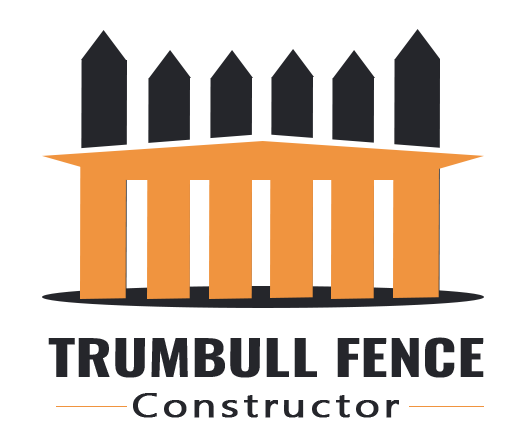
In today’s world, environmental considerations play a crucial role in our decision-making process, even when it comes to something as seemingly mundane as choosing a fence for our homes or properties. Fortunately, there is a fencing option that not only enhances the aesthetic appeal of your space but also provides a range of environmental benefits: wood fencing. In this blog, we will delve into the expertise of a trusted fence contractor in Trumbull, CT, who sheds light on the numerous environmental advantages of selecting a wood fence.
Regarding sustainability, as recognized by a fence contractor in Trumbull, CT, wood stands out as an exceptional choice for fencing materials. Let’s delve into the reasons why wood is a sustainable option:
Wood used for fencing comes from responsibly managed forests. This means that trees are planted and harvested in a controlled manner, ensuring the long-term health and productivity of the forest ecosystem. The wood supply for fencing can be replenished through sustainable forestry practices over time, making it a renewable resource.
Wood has a remarkable ability to absorb and store carbon dioxide from the atmosphere, thereby aiding in mitigating climate change. Trees capture carbon dioxide through photosynthesis during the growth phase and incorporate it into their woody structure. By choosing wood fencing, you contribute to carbon sequestration and help reduce greenhouse gas emissions.
Wood fencing requires less energy input than non-wood materials like vinyl or metal. The manufacturing process of wood fences involves less energy-intensive procedures, resulting in lower carbon emissions. This energy efficiency contributes to a reduced environmental footprint associated with wood fencing.
Wood is a natural, biodegradable material that can break down and return to the environment over time. When a wood fence reaches the end of its life, it can be recycled or composted, minimizing waste generation and diverting materials from landfills. This eco-friendly aspect of wood fencing aligns with the principles of a circular economy and sustainable waste management.
Besides its sustainability credentials, wood fencing offers timeless beauty and versatility in design. With various wood species, finishes, and styles available, you can customize your fence to suit your preferences while maintaining an environmentally conscious approach.
Consulting a professional fence contractor in Trumbull, CT, with expertise in wood fencing, can provide valuable insights and guidance in selecting the most suitable wood species and installation techniques for your specific needs. They can ensure that responsible sourcing practices are followed, guaranteeing the sustainability of your wood fence. By choosing wood as a sustainable fencing material, you contribute to the conservation of forests, promote carbon sequestration, and make an eco-conscious decision that aligns with the principles of environmental stewardship.
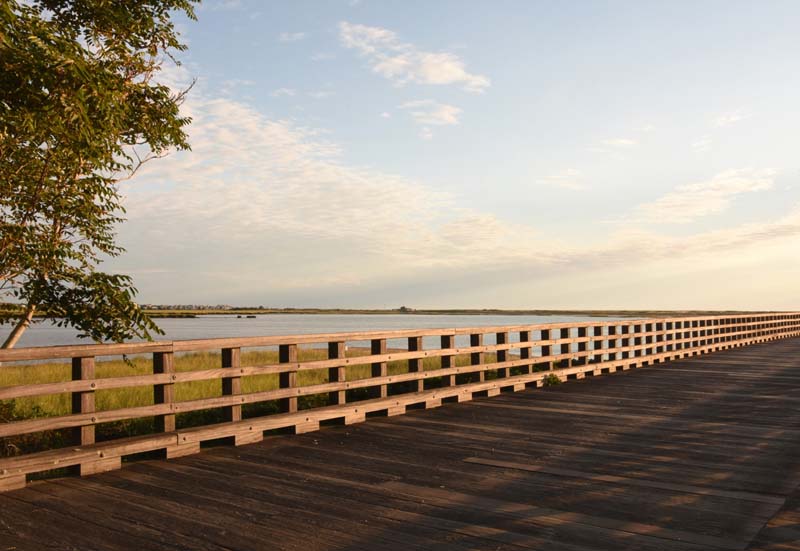
As highlighted by a fence contractor in Trumbull, CT, Wood fencing offers a range of benefits beyond its functional and aesthetic appeal. Let’s explore how wood fencing positively impacts biodiversity and plays a crucial role in preserving natural habitats:
Wood used for fencing often comes from forests managed through responsible practices. Unlike certain industries that use clear-cutting practices, responsible wood harvesting focuses on maintaining the balance of the forest ecosystem. This approach includes selective cutting and reforestation, ensuring the long-term health and biodiversity of the forest.
The production of alternative fencing materials, such as vinyl or metal, may contribute to habitat destruction by extracting non-renewable resources or the pollution caused by their manufacturing processes. In contrast, wood fences have a lower environmental footprint and minimal habitat impact. Responsible wood sourcing protects existing habitats and minimizes the disruption of wildlife ecosystems.
Wood fences have the advantage of blending harmoniously with their natural surroundings. Wood, a natural and organic material, allows fences to seamlessly integrate into the landscape. This integration helps maintain the visual continuity of natural habitats, minimizing visual barriers and preserving the overall aesthetic appeal of the environment.
Wood fences, installed by a reputable fence contractor in Trumbull, CT, provide valuable habitats for diverse wildlife species, including birds, insects, and small mammals. The natural crevices and hollows found in wood fences serve as nesting sites, shelters, and feeding areas for these animals. Wildlife within and around wood fences contributes to the surrounding area’s overall biodiversity and ecological balance.
By choosing wood fencing installed by a reputable fence contractor in Trumbull, CT, you demonstrate a strong commitment to sustainability and contribute to the conservation of natural resources. Opting for responsibly sourced wood actively supports the preservation of biodiversity and leaves a positive environmental legacy for future generations to cherish and enjoy.
A professional fence contractor in Trumbull, CT, specializing in wood fencing, can provide expertise and guidance on selecting sustainable wood options and installation techniques. Their knowledge ensures that the wood used in your fence comes from responsibly managed sources, supporting biodiversity conservation efforts. By opting for wood fencing, you make a conscious choice to promote habitat preservation, reduce habitat destruction, and support the natural integration of fences into the surrounding environment. This eco-friendly approach benefits biodiversity and enhances the overall ecological balance of your property and its surroundings.
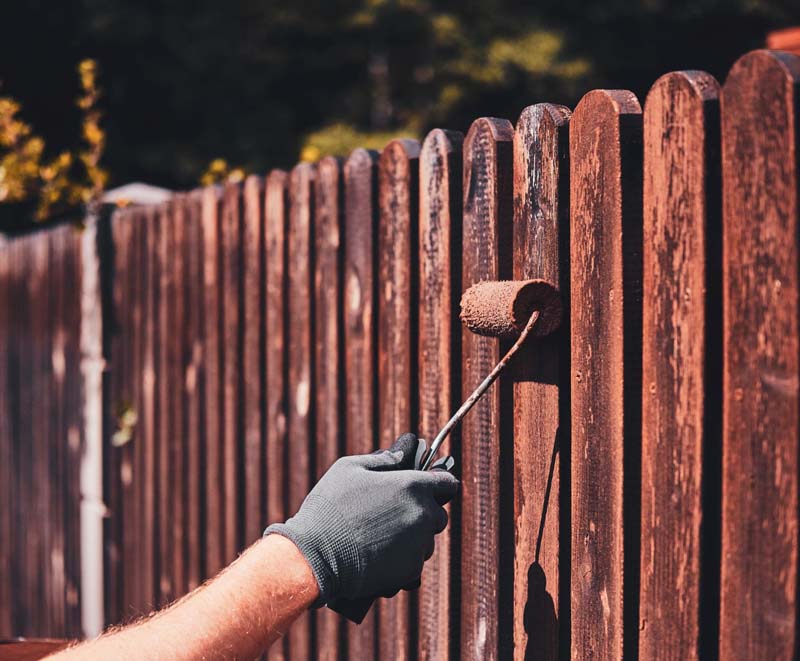
In our collective efforts to combat climate change and reduce carbon emissions, the choice of fencing materials can make a substantial difference. Wood fencing is a favorable option due to its inherent carbon sequestration properties and lower environmental impact. Let’s explore how wood fencing contributes to carbon footprint reduction:
Trees, the primary source of wood used in fencing, naturally absorb carbon dioxide from the atmosphere through photosynthesis. As trees grow, they store carbon within their biomass, including wood. By selecting wood fencing, we support the continuous process of carbon sequestration, reducing greenhouse gases in the atmosphere. This carbon capture feature of wood helps mitigate climate change, making wood fencing an eco-friendly choice.
Wood used for fencing is sourced from responsibly managed forests. These forests are carefully regulated to ensure the sustainability of timber production. By utilizing wood from sustainably managed forests, we encourage the growth of healthy forests that actively absorb carbon dioxide, contributing to long-term carbon sequestration.
The production process of wood fencing requires less energy compared to the manufacturing of non-wood alternatives such as vinyl or metal. Wood is a relatively low-energy material, undergoing minimal processing before becoming a fence. The reduced energy consumption during production produces lower carbon emissions and a smaller carbon footprint.
Wood is a renewable resource that can be replenished through responsible forest management practices. When a wood fence reaches the end of its lifespan, it can be easily recycled or left to biodegrade naturally. Recycling wood from old fences or using it for other purposes reduces the need for new wood production, reducing carbon emissions associated with manufacturing.
Wood used in fencing continues to store carbon throughout its lifespan. By extending the life of a wood fence through proper maintenance and care, we maximize its carbon storage potential. This longevity reduces the demand for new fencing materials, thereby minimizing the environmental impact associated with their production.
Choosing wood fencing not only promotes carbon sequestration but also supports sustainable forest management practices. Consulting a professional fence contractor in Trumbull, CT, with expertise in wood fencing, can provide valuable insights into selecting suitable wood species, proper installation techniques, and maintenance practices. Their guidance ensures that you make an informed decision in reducing your carbon footprint and positively impacting the environment.
By opting for wood fencing, we actively contribute to carbon footprint reduction, support the renewable nature of wood, and encourage sustainable forestry practices. Together, these actions contribute to a more sustainable and climate-resilient future.
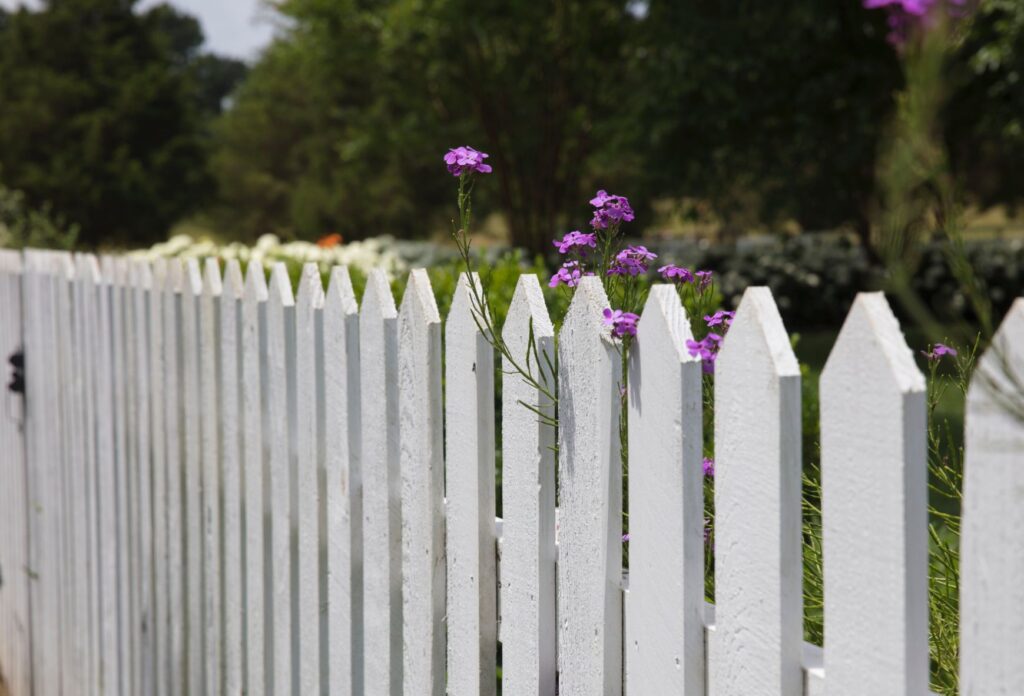
Water conservation, a critical consideration emphasized by a fence contractor in Trumbull, CT, is vital in our efforts to protect and preserve this precious resource. Wood fencing offers several advantages when it comes to water conservation. Let’s explore how wood fencing contributes to water conservation:
When it comes to fence installation, wood fences stand out as a water-conserving choice over alternative materials like vinyl or metal. A fence contractor in Trumbull, CT, emphasizes the minimal water usage required to produce wood fences. Wood is responsibly sourced from managed forests and undergoes a straightforward manufacturing process, significantly reducing the need for water-intensive procedures. This eco-friendly approach ensures the durability and aesthetic appeal of wood fences and contributes to the overall conservation of water resources.
Once wood fences are installed by a fence contractor in Trumbull, CT, they become an excellent choice for water-conscious individuals. Unlike certain alternative materials that demand frequent washing, cleaning, or irrigation, wood fences generally require minimal water usage for maintenance. This long-term water-saving benefit ensures water resource conservation and underscores the sustainability of wood fences throughout their lifespan.
Wood fences, preferred by a fence contractor in Trumbull, CT, offer compatibility with natural drainage systems. Their porous nature enables wood to allow rainwater to pass through, reducing the strain on stormwater management infrastructure. In contrast to impervious materials like concrete or metal, this characteristic of wood promotes groundwater replenishment and contributes to a balanced hydrological ecosystem.
Wood fencing, highly recommended by a fence contractor in Trumbull, CT, is an ideal complement to sustainable landscaping practices prioritizing water conservation. By incorporating native plants, implementing xeriscaping techniques, and utilizing efficient irrigation systems, individuals can create a harmonious water-wise landscape that aligns seamlessly with their wood fence. This holistic approach guarantees the efficient utilization of water resources while minimizing unnecessary water consumption.
Opting for wood fencing, as recommended by a fence contractor in Trumbull, CT, showcases a commitment to water conservation efforts. By choosing wood fences over materials that demand continual water usage, like lawn irrigation for maintenance or cleaning non-porous surfaces, individuals demonstrate their dedication to sustainable practices and responsible water management.
A professional fence contractor in Trumbull, CT, well-versed in wood fencing techniques and practices, can provide expert advice on choosing the right wood species, installation methods, and maintenance practices that align with water conservation principles.
Wood fencing offers aesthetic appeal and durability and supports water conservation efforts. Its minimal water usage during production and reduced ongoing water waste make it an environmentally friendly choice for individuals seeking sustainable fencing options.
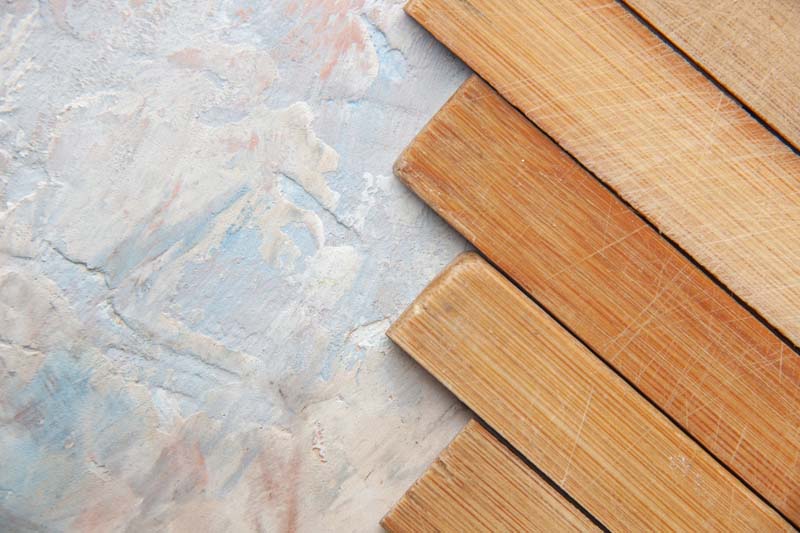
Wood fences, known for their exceptional longevity and durability as recognized by a fence contractor in Trumbull, CT, excel, especially when proper maintenance is implemented. Here are key points to consider regarding the longevity and sustainability of wood fencing:
Wood fences installed by an experienced fence contractor in Trumbull, CT, are known for their ability to withstand the test of time. Through regular care and maintenance, these fences remain durable and reliable. Applying sealants or protective coatings is essential to prevent moisture absorption, rot, and insect infestation, significantly extending the fence’s lifespan. By conducting regular inspections and addressing any issues promptly, such as loose boards or damaged sections, individuals ensure the continued integrity of their wood fence, preventing further deterioration.
At the end of its lifespan, a wood fence installed by a reputable fence contractor in Trumbull, CT, offers the advantage of being biodegradable. Wood naturally decomposes, seamlessly returning to the environment without leaving harmful residues. Additionally, wood fences can be recycled or repurposed, minimizing waste generation and reducing the demand for new material production.
Non-wood fencing materials, such as vinyl or metal, often contribute to landfill waste when they reach their lifespan. In contrast, wood fences offer a more sustainable alternative. With proper disposal methods, such as recycling or natural decomposition, wood fences have a lower impact on waste management systems. This reduced waste generation aligns with sustainable practices and minimizes the burden on landfills.
When it is necessary to replace a wood fence, sustainable alternatives are available. By selecting wood sourced from responsibly managed forests or utilizing reclaimed wood, you can continue to prioritize sustainability and contribute to the circular economy. These options minimize the need for new wood production and help conserve natural resources.
Wood fencing, provided by a fence contractor in Trumbull, CT, offers not only exceptional durability but also adds significant aesthetic value to your property. With a wide range of wood species and finishes, you can choose a style that harmonizes with your surroundings and personal taste. Wood’s natural warmth and inherent beauty create a timeless appeal that enhances the overall aesthetic of your outdoor space.
Consulting a professional fence contractor in Trumbull, CT, experienced in wood fencing, can provide valuable insights into proper maintenance techniques, sealant options, and potential reuse or recycling methods. Their expertise ensures that your wood fence remains durable and environmentally responsible throughout its lifespan.
By choosing wood fencing, you invest in a long-lasting and sustainable solution. The longevity and durability of wood, coupled with its biodegradability and recycling potential, contribute to reduced waste generation and a smaller environmental footprint. Additionally, the visual appeal and timeless beauty of wood enhance the overall aesthetic value of your property, creating a welcoming and sustainable outdoor space.
Selecting a wood fence for your property offers numerous advantages, enhancing its visual appeal and aligning with your environmental values. When you partner with a reputable fence contractor in Trumbull, CT, who specializes in wood fencing, such as Trumbull Professional Fence Contractor, you can make an informed decision that promotes a sustainable future.
Wood fencing stands out for its renewability, as responsible forest management ensures a continuous wood supply while maintaining ecosystem balance. The carbon sequestration properties of wood play a crucial role in mitigating climate change, as trees naturally absorb and store carbon dioxide. By choosing wood fencing, you actively contribute to carbon capture and reduction of greenhouse gas emissions.
Moreover, wood fencing supports biodiversity preservation by minimizing habitat destruction and providing a habitat for local wildlife. Its minimal water usage during production and reduced ongoing water waste make it a water-conserving option for environmentally conscious individuals.
By opting for wood fencing, you demonstrate your commitment to reducing your carbon footprint and preserving the natural beauty of your surroundings. Take the next step towards a sustainable future by contacting Trumbull Professional Fence Contractor in Trumbull, CT, who can provide expert guidance on choosing the right wood species, installation techniques, and maintenance practices for your wood fence project. Embrace the beauty, durability, and environmental benefits of wood fencing by requesting a consultation today.
Call Trumbull Professional Fence Contractor today to get started on your sustainable wood fencing journey. Make a lasting positive impact on your property and the environment with a wood fence installed by trusted professionals.
